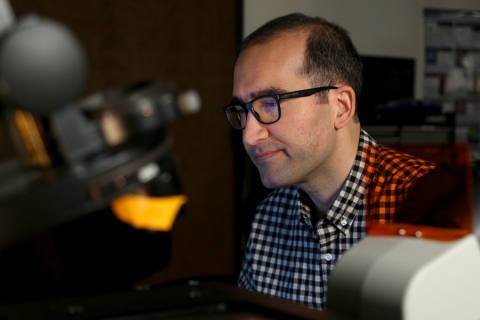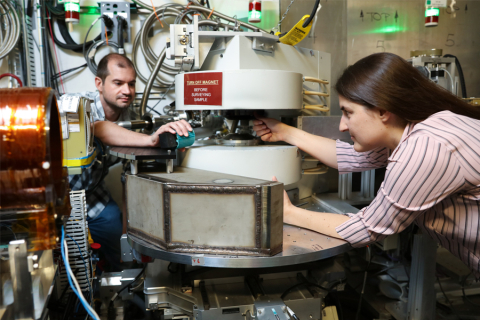Doudna, a UC Berkeley professor and Berkeley Lab faculty scientist, is co-winner of the 2020 Nobel Prize in Chemistry.

Virginia Tech’s Patrick Huber is modeling reactor neutrino fluxes, improving our understanding of neutrino properties and their role in the cosmos.
Princeton U researchers invented a method for using light to turn on & off a mechanism in E. coli bacteria that is key to producing valuable chemicals

“Electric bacteria” pass electrons through cell walls to solid minerals outside the cell. El-Naggar studies how and why this amazing process happens.
Researchers at the University of Maryland have developed an improved technique to make waveguides that can withstand the power of intense lasers.

Perumalla’s work on reversible computing is overcoming challenges in exascale computing.
VCU researchers addresses an important area for medicine, industry and science: Understanding how liquids — mainly water — interact with surfaces.
The findings should aid researchers developing antiviral drugs and treatments, and provide new insights into how this large class of viruses work.

At the Center for Nanophase Materials Sciences, Director Karren More leads her team in pushing the known edge of nanomaterials research.

When nuclear scientists use different techniques to measure the neutron lifetime, they get different results. Could this be pointing to new physics?

